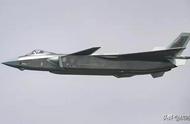Since的用法
Since分别有两种含义:时间和原因。我们可以依照句子句意、结构和时态,决定since在句子中的意思。

1. 时间
在时间的层面上,与「自从」有相似的意思。 Since通常可作为介系词代入一个片语、或连接词代入一个子句、或是以副词单独存在。另外,since后的子句大多是过去式,主要子句为完成式。
连接词
当since用作连接词时,可搭配一段期间或某个时刻,引导时间附属子句,意为「自从…」。附属子句,即 since 子句,的动词通常为过去简单式或现在完成式,而主要子句则使用现在完成式或过去完成式,但以现在完成式居多。如要表示一段期间,since子句该为现在完成式;如要表示某个时刻,since子句便为过去简单式。不论是过去简单式还是现在完成式,意思大致上相同。
【例】I haven’t done any outdoor activities since I graduated from university.
【例】John had been cooking his own dinner since he was twelve years old.
在另一种情况下,当主要子句的结构为” It be 时间 since”,可以以四种不同的句型构成,但意思绝对相同。主要子句的be以现在简单式 is或现在完成式 has been,而附属子句则为过去简单式或现在完成式。在美式英语中,” It has been… since…” 比较常见。
【例】It is ten months since Paul and Linda moved to a new apartment.
【例】It is ten months since Paul and Linda have moved to a new apartment.
【例】It has been ten months since Paul and Linda moved to a new apartment.
【例】It has been ten months since Paul and Linda have moved to a new apartment.
其实在刚刚说明的结构中,be亦可使用过去简单式 was 或过去完成式 had been,但此时 since 子句须使用过去简单式或过去完成式。
【例】It was ten months since Paul and Linda moved to a new apartment.
【例】It had been ten months since Paul and Linda had moved to a new apartment.
当 since 不是引导过去某个动作或事件,而是过去的某个状态并现在一直持续着 ,主要子句及其附属子句都要用现在完成式。
【例】Tom has been sleeping less than 4 hours every day since he has become a doctor.
副词
作为时间副词,since/since then有着「此后,从此,自那以后」的意思。
而ever since能用来加强since和since then的语气。
【例】We graduated from secondary school a year ago and we haven’t reunited since/since then.
【例】They divorced a few months ago and haven’t contacted each other ever since.
介系词
作为介系词时,since只能与某一时刻搭配,即是since之后必须接着日期、年份等时间有关的词。时刻能以副词(e.g. yesterday)、名词片语(e.g. the beginning of the match)或动作动词(e.g. I left)表示。意为「自从…,自…以来,从…至今」。
【例】Since yesterday, I haven’t eaten anything.
【例】Since the beginning of the match, she has been cheering loudly for her teammates.
【例】Since I left my previous workplace, it has become much quieter than before.
在某种情况下,我们可以将since从连接词变成介系词—就是当 since 子句和主要子句的主词(subject)是相同时,便可省略 since 子句的主词。这样,本身句中的主动词须改为动名词 ,接在since后。
【例】Since attending tutorial classes, I have become more confident when answering questions during lessons.
(原句:Since I have attended tutorial classes, I have become more confident when answering questions during lessons.)

2. 原因
除了在时间方面,since 亦可作为连接词,引导表示原因的附属子句,意为「既然」。 Since接着的子句通常是现在式,亦能是整个前后子句都为过去简单式。放在主要句子前或后都同样没问题。 Since的运用大多想表达显而易见或已成事实的原因。
【例】Since it is too cold out there, I will just stay home today.
【例】Since the power is out, we should just go to bed directly.

其他词能取代since吗?
1. Since vs. For
Since和for同为时间介系词,适用于完成式的句子,表达某人已做了某件事或处于某个状况一段持续的时间。可是,它们的用法有些不同,所以for是不能替代since。接着,让我们看看应如何区分since和for。
Since 特定时间点(point of time):表示当事件发生在某个时刻时
【例】She has lived with her husband since she got married.
【例】I have stopped drinking milk since three years old.
For 时间长度(length of time):表示当事件持续了一段时间
【例】She has lived with her husband for five years.
【例】I have stopped drinking milk for ten years.
2. Since, Because, As
Since,because 和as都可写作「因为」,用法大致上相同。唯一少许的差异在于它们的语气。 Because的语气最强,其次是since,as算是最温和。
Since及as用作对已知的事实提供理由和原因,并非表示直接原因,视附属子句(since/as子句)为附加资料。还有,通常since和as的子句会加上逗号,将原因和主要子句分开,降低原因的重要性。 Since的语气比as稍微强一点和正式一点。
Because则是表示直接原因,强调原因。适合用于回答why的问题,以及引导从句。























